Farming case studies
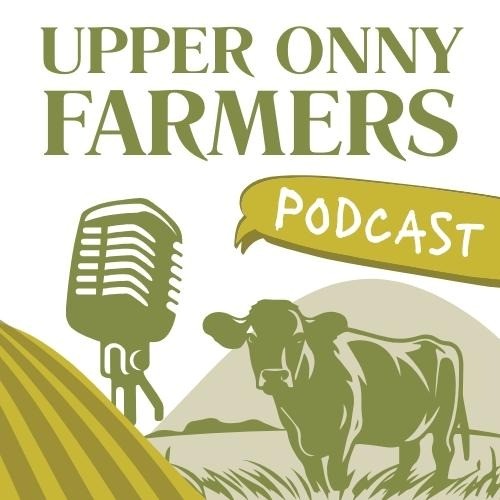
A chance to listen to members of the Upper Onny Farmers Group as they share day-to-day farming chat and swap local farming stories from years gone by...
The episodes are live and available to listen to via Spotify and Apple Podcasts by clicking on the buttons below.
Three farmers share their motivations, methods, and results of bringing trees into their farmed landscapes.
_600x450.jpg)
Watch this inspiring 10-minute film to hear the thoughts of 3 local farmers on planting wood pasture, hedgerow and in field trees to provide shade and shelter for their cattle and sheep.
It was funded by the Farming in Protected Landscapes programme as part of Pasture for Life's Pasture and Profit Project in the Shropshire Hills, Wye Valley, and Malvern Hills National Landscapes.
The film was planned and directed by Lucy Grove, Land Girl Friday, and camera, aerials, sound, and editing was by Robin Fellows-Weir, RFW Photo Video.
Learn more about the work that farming families are doing to produce quality food in a way that works alongside nature and benefits the Shropshire Hills landscape and people.
These case studies were produced by the Shropshire Good Food Partnership, with funding from the Farming in Protected Landscapes Programme (FiPL).
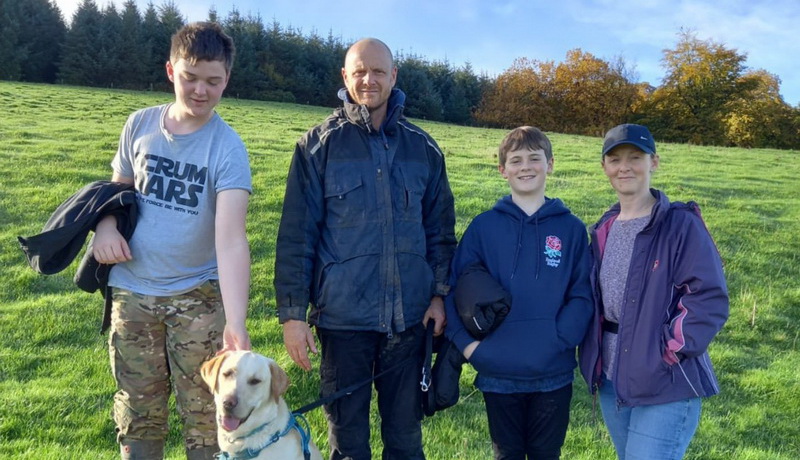
Dan Watkins & Family, Powkesmore Farm, Ditton Priors
The family have been farming regeneratively for five years with a mixed operation including a suckler herd, arable and a parent-stock intensive poultry operation.
“FiPL has funded the electric fencing and the drag troughs, which has helped the mob grazing system. You know, this is where I started to invest more knowing that we're getting just the same if not more grass without any chemical fertilizer. It's just a win-win, with the same amount of cattle.”
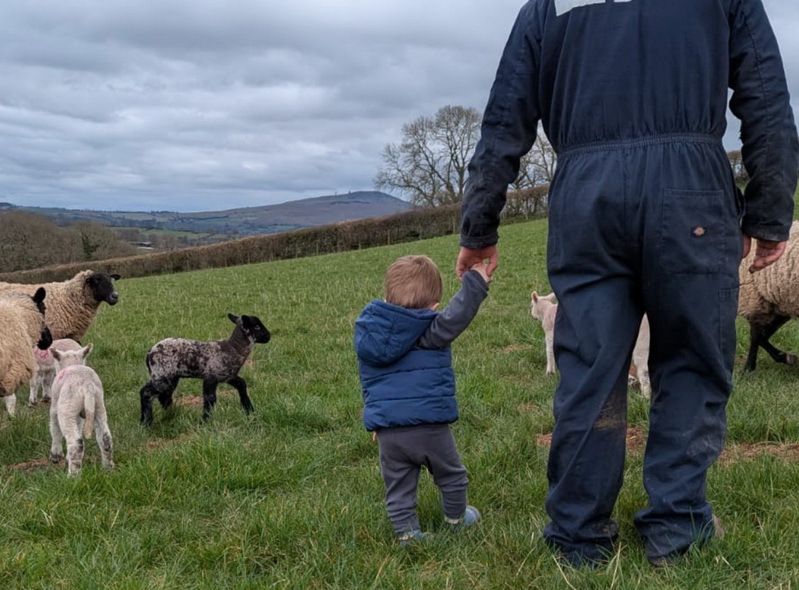
Neil Brown & Family, New House Farm, Ludlow
300 acre mixed farm in the early stages of developing a rotational grazing system. They've noticed that the amount and quality of the grass has improved and with fewer weeds as the land has recovered. Weed pressure is often a worry when starting this transition, but as soil health improves the number of weeds decrease. By finishing the cattle primarily on grass, Neil has noticed how healthy and well they look.
“To be fair, a lot of people wouldn't probably even consider splitting fields up with electric fences. They don't want the work and the hassle of that. But for me, trying to manage the grass better and giving that a go is definitely a win.”
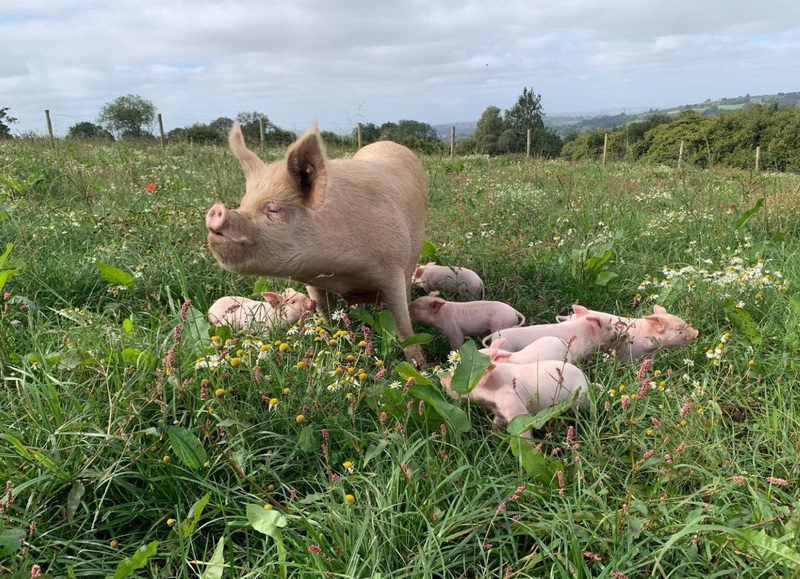
Bodbury Farm, Wheathill. A DIY organic journey in pasture-reared pork
Specialise in outdoor, pasture reared pigs in a rotational grazing set-up on 30 acres. They are newly certified organic with the Soil Association. The pork is available for purchase online through DHL overnight delivery or local collection.
“FiPL helped us set up a 24 paddock grazing system with double stock fencing, and we've planted hedgerows around every grazing cell. It has also helped us set up masses of habitat creation."
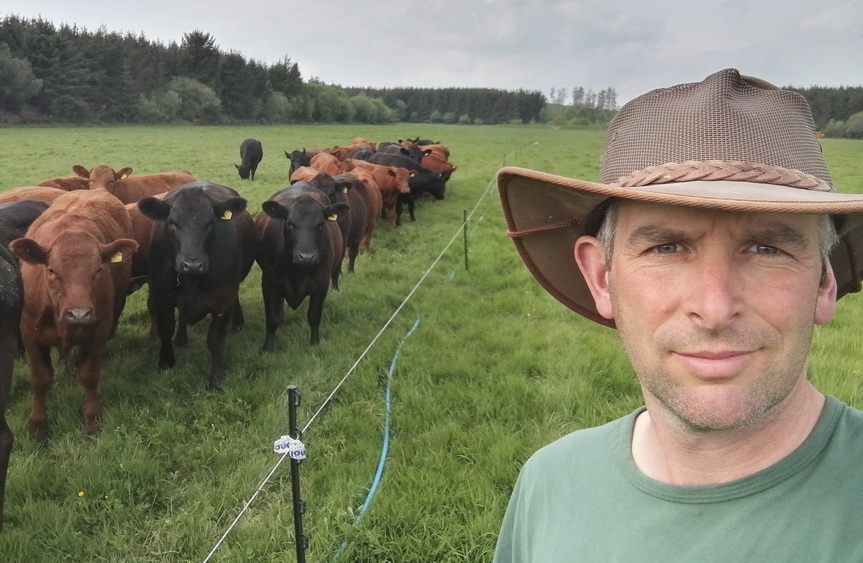
Duncan Bennett, The Firs, The Bog Farm & Hope Park
Duncan has been shifting to a more regenerative system over the last few years and has become an advocate of this way of beef and lamb production. FiPL helped Duncan to set up electric fencing for his rotational grazing and to install more water supply infrastructure.
“You're pouring insecticides on your stock, so that's inevitably going into the soil, killing all your bug life.”
Hatton Manor Farm, ‘Proper Good Dairy’, Church Stretton
The Proper Good Dairy is known across South Shropshire for its ‘milk vending machines’. Jaci and Tristan Dale have been running their organic dairy operation together for over 15 years. The farm operates as a Spring Block Calving dairy, with calving of their 280 cows running from March through May. Alongside the vending machines, they also supply around 60 local shops.
“People are realising that food isn't necessarily all the same, and when you buy direct you can be much more confident that what you're buying is what you expect it to be."
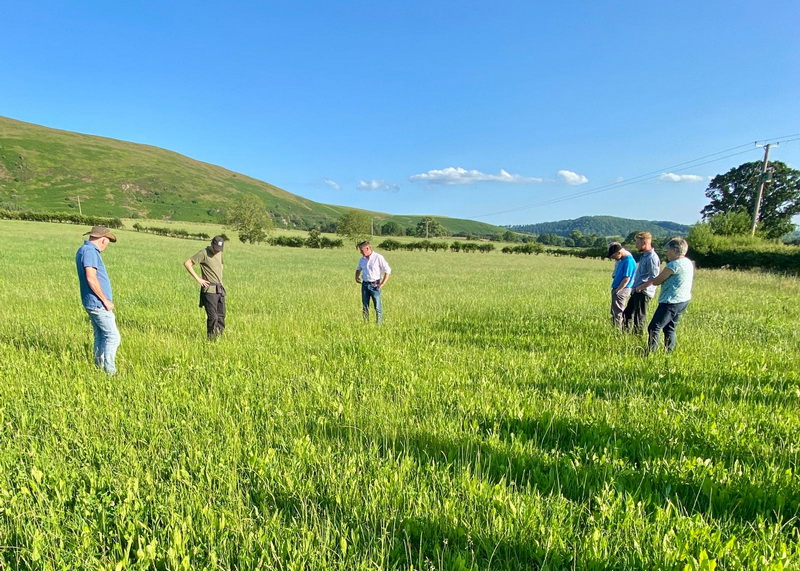
Chris Evans, Myndtown Farm, Lydbury North
703 acres upland livestock farm at the South Western end of the Long Mynd and part of the Plowden Estate. Farmer, Chris Evans, took on the farm tenancy in 2021, with agreement to move the business to a more regenerative way of farming. This has meant developing the different parts of the farm to function as an ecological and productive farming system.
FiPL has helped Chris to plant 2000m of new hedgerows and 200 native trees (e.g. English Oaks). As part of his livestock management, the funding has supported the installation of 5000m of permanent 4-stand electric fence, a solar pump and infrastructure on top of the Long Mynd and the purchase of no-fence cattle collars.
“A vertical learning curve!”
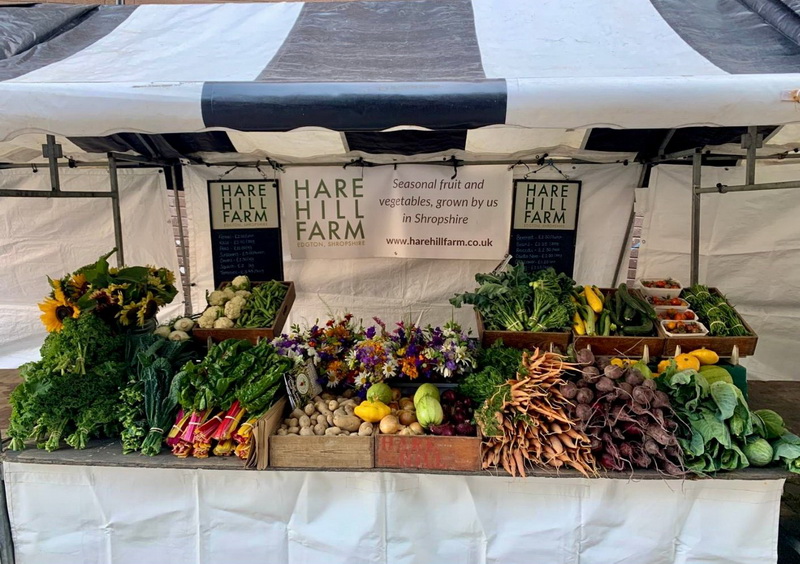
Hare Hill Farm, Edgton. Market gardening in the Shropshire Hills.
Liam and Alice O’Brian run Hare Hill Farm on 7.5 acres. They have built up and diversified their business by combining a market garden and a small flock of sheep for hogget and mutton. They sell across several regular markets and at Harborne and Moseley Markets in Birmingham, as well as a veg box delivery loop in their area.
FiPL has enabled Liam and Alice to fence along a watercourse and planting it with bank side trees and shrubs. This new riverside habitat will improve riverbank stability and help to keep the water clean.
"Being small scale producers, grants like these are vital. They allow us to improve not only the infrastructure of our farm, along with its biodiversity, but also the sustainability of our business."
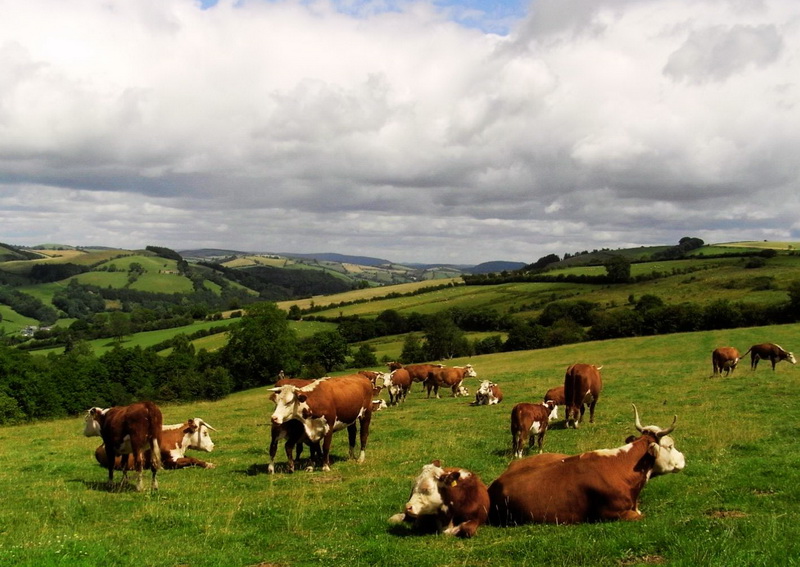
Cowhall Farm, Newcastle on Clun. Maintaining the heritage of a traditional organic farm
With elevation ranging from 800 to 1400 feet (245 – 425 metres), the farm is mostly grassland, with much permanent pasture. Some is ancient hay meadow with extremely high botanical diversity. Hill-top fields have been kept in a historic arable rotation, which provides feed for the farm in a circular system.
"FiPL - it's one of the few schemes that gives you flexibility and common
sense and somebody local to talk to. We've been hedge planting, mainly reinstating dilapidated hedges. We've got three new ponds, four leaky dams, quite a bit of tree planting.”
A case study to show how a grant from the Farming in Protected Landscapes programme is supporting landscape-scale projects to reduce flood risk and clean up water:
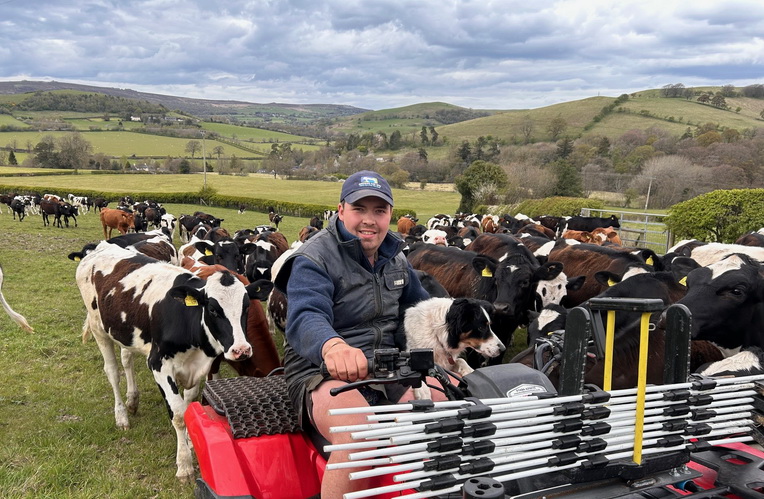
Coppice Farm, Ratlinghope: Water course protection and wetland creation on the Darnford and Bilbatch Brooks. (September 2023 - March 2025)
Awarded £35,837.69. Total project cost £38,274.76.
Farmer, Ben Cooke used FiPL funding to fence approximately 1.5km of watercourse, limiting livestock access and protecting adjacent wetlands. This has helped to restore and increase wetland habitat for wading birds such as Curlew and Lapwing, improve water quality and is helping to reduce downstream flooding. A solar powered water pump was also installed to provide drinking water for livestock.

.JPG)